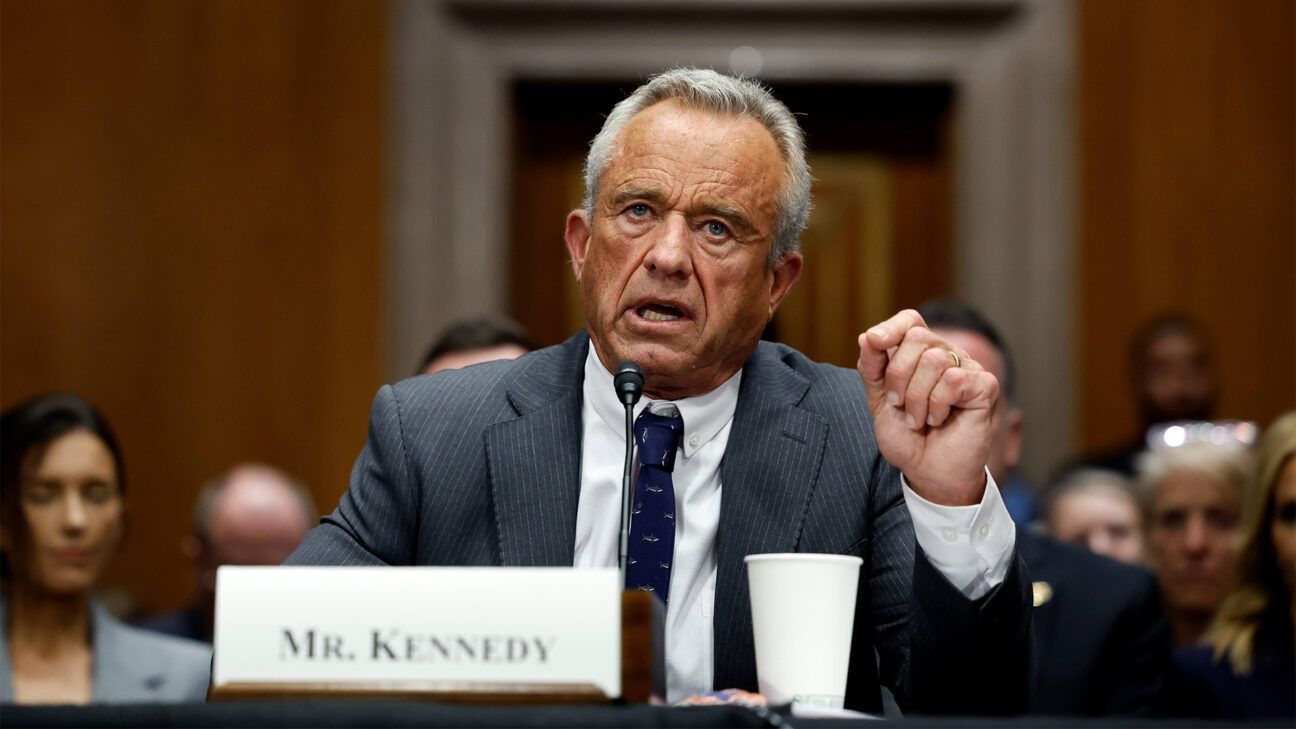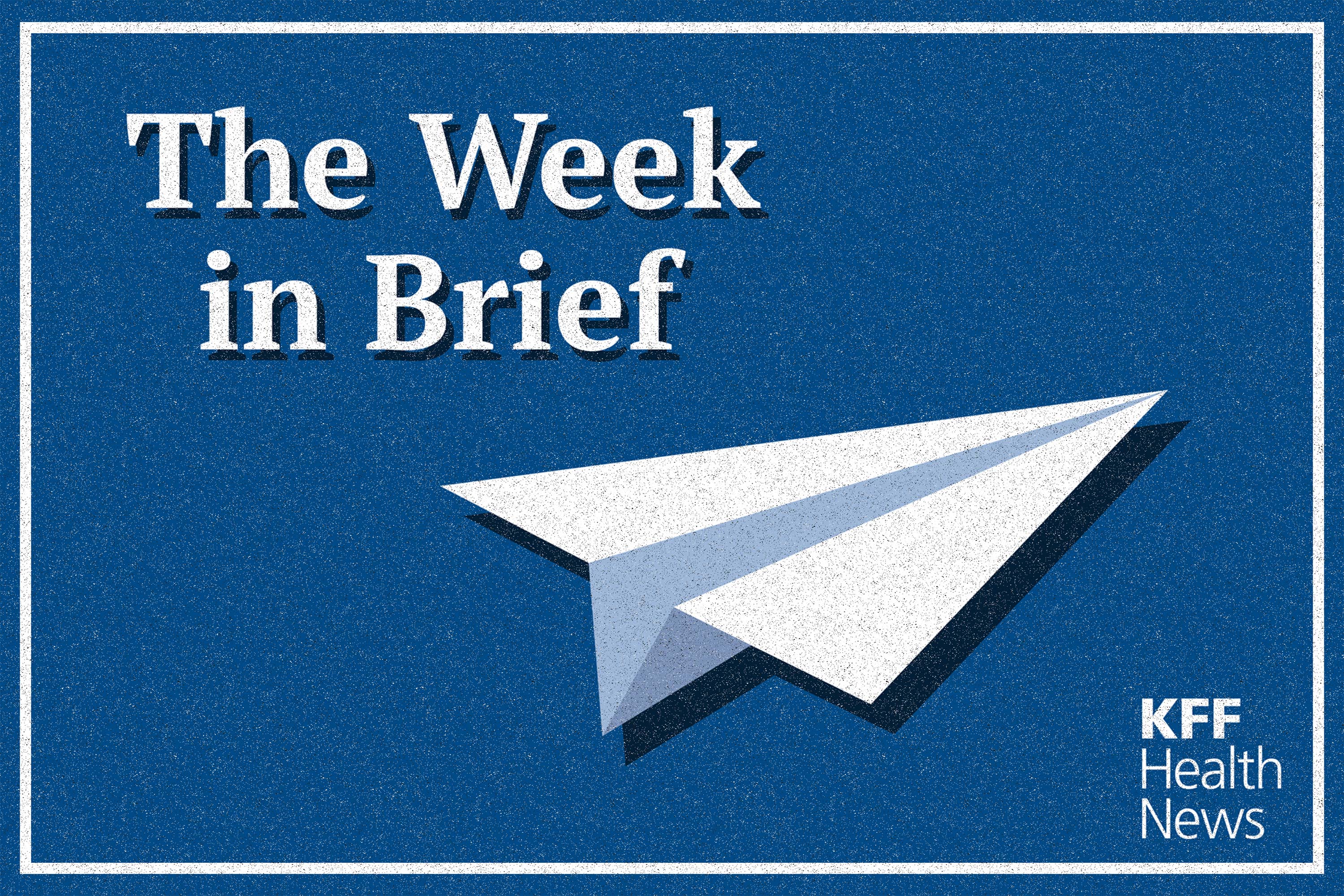Rfk Jr. Is New Health Secretary: What ‘make America Healthy Again’ Means For U.s.

RFK Jr.’s “Make America Healthy Again” platform aims to help reduce the growing chronic disease burden in the United States. Kevin Dietsch/Getty Images
- Robert F. Kennedy Jr. is the new Health and Human Services secretary after being confirmed by the U.S. Senate.
- Kennedy is expected to shake up the U.S. healthcare, food, and pharmaceutical industries by implementing programs and policies from his “Make America Healthy Again” platform.
- The MAHA agenda includes reducing chronic disease, improving food safety, and encouraging healthier diets.
Robert F. Kennedy Jr. was confirmed by the U.S. Senate on Thursday as the nation’s new secretary for Health and Human Services (HHS).
While Kennedy is best known for his views on the potential dangers of vaccines, he has laid out an ambitious agenda under his “Make America Healthy Again (MAHA)” platform.
Among the topics are food safety, healthy diets, and mental health. Kennedy also focuses on environmental toxins, an issue that has driven many of his anti-vaccine stances.
A MAHA political action committee has been established, officially separate from Kennedy. It promises to disrupt the healthcare system in the United States.
“We are uniting health-conscious, independent-minded voters to champion transformative policies and hold government agencies accountable,” the committee’s website states.
One of the main focuses of both Kennedy and the political action committee is the reduction of chronic disease in America. A major theme is preventive medicine versus treatment of illness.
Overall, MAHA officials are looking at a major overhaul of the U.S. healthcare system.
“Together we can create a medical system that is designed to heal, rather than prescribe,” a MAHA Action site states.
The MAHA Action website breaks down what it calls “America’s Health Crisis” into six categories:
- Health Conditions in Children
- Chronic Health Conditions
- High Disability Rate
- Increase in Cancer Rate
- Spike in Illness Rate
- Mental Health Crisis
Some experts express reservations about parts of the MAHA plan, but they also find positive aspects in other sections.
Monica Gandhi, MD, a professor of medicine and associate chief of the Division of HIV, Infectious Diseases, and Global Medicine at the University of California, San Francisco, has concerns about Kennedy’s previous comments on vaccines. However, she thinks that there are some merits to other parts of the MAHA platform.
“I think some of the elements of the Make America Healthy Again plan are really interesting and will likely have an impact on American health in terms of a healthier diet, metabolic health, and better mental health,” she told Healthline.
Philip Werthman, MD, a urologist and director of the Center for Male Reproductive Medicine and Vasectomy Reversal in Los Angeles, shared similar sentiments. Werthman said that he was concerned by some of Kennedy’s past comments but agreed that we need to “separate the policies from the person” and look at the overall goals.
“America is unhealthy. We can all agree on that,” Werthman told Healthline. “Something needs to change. We are not doing well. There are some good concepts here, no matter who is proposing them.”
It should be noted that the MAHA platform doesn’t mention issues such as the Affordable Care Act (ACA) or Medicare drug price negotiations.
Kennedy has offered few details on his plans for these government-run health insurance programs. Here’s a look at four main targets that are emphasized in the MAHA platform.
Chronic disease burden
The MAHA political action committee’s Chronic Illness in America section on its website lists several figures. Among them:
- About 60% of U.S. adults (204 million people) have at least one chronic disease. About 40% have at least two of these conditions, which include cancer, diabetes, and heart disease.
- The adult obesity rate in the United States stands at 42%, the first time the national rate has hovered above 40%.
- Only about 12% of Americans are metabolically healthy. Most of the rest of the populace has at least one metabolic condition, such as high blood pressure, elevated blood sugar, and abnormal cholesterol levels.
The United States spends more than $12,000 per person per year on healthcare expenditures, the most among higher income nations. However, the United States ranks 49th among nations in life expectancy and last among higher income countries for infant and maternal mortality.
MAHA officials advocate a multi-pronged solution to address these issues.
“We advocate for a comprehensive, national strategy to address the root causes of America’s chronic disease crisis — poor diets, environmental toxins, and inadequate healthcare systems,” the MAHA Action website states.
In his opening statement at his confirmation hearing, Kennedy said that he would focus more on chronic disease than he would on infectious illnesses such as COVID-19, measles, and the flu.
Kennedy and MAHA officials see pollutants as a major source of chronic disease and illness.
“RFK Jr. is going to ban harmful chemicals driving chronic illness and restore health to future generations,” the website states.
The group also targets the pharmaceutical industry.
“RFK Jr. is going to hold pharmaceutical companies accountable and reform a system that profits from chronic illness,” the website states as a solution to the increasing number of Americans living with chronic health conditions.
Environmental toxins, vaccines
The MAHA political action committee promotes the protection of natural habitats as a way to improve public health.
“Clean air, water, and food are non-negotiables,” the committee site states. “We promote candidates and policies that remove harmful chemicals and pollutants to ensure every American lives in a toxin-free environment.”
“RFK Jr. is going to clean up our air, soil, and water to protect health and our planet,” the MAHA Action website states as a solution to rising cancer rates.
Werthman agreed a cleaner environment is essential for public health.
In particular, he noted the effects environmental toxins have had on both male and female reproductive health. He says that he has first-hand knowledge from his field of work on lower testosterone levels and lower fertility rates.
“Clean water and clean air make sense for anybody and everybody,” Werthman said.
Kennedy’s passion for a cleaner environment is tied to the anti-vaccine views he has expressed over the years.
As part of that campaign, Kennedy formed the World Mercury Project, which later became the Children’s Health Defense organization.
There’s no mention of vaccines in the MAHA platforms, but some of the group’s leaders are vocal vaccination opponents.
At his confirmation hearing, Kennedy refused to acknowledge the scientific consensus that childhood vaccines don’t cause autism and that COVID-19 vaccines saved millions of lives. He also falsely asserted the government has no good vaccine safety monitoring programs.
At his hearing, Kennedy insisted that he isn’t anti-vaccination and that he supports inoculations. He stated that people who want to be vaccinated should be able to do so.
Gandhi said that she hoped Kennedy’s statements on vaccines during the hearing were more reflective of how he would handle the nation’s vaccination programs.
“Mr. Kennedy does have a history … of not supporting vaccinations for children,” she said.
“Vaccines are the safest way to combat infectious diseases since they help you generate immunity against the pathogen without having the disease from the pathogen. Therefore, I would hope that RFK Jr. keeps to his promises in the hearing to help encourage childhood vaccination (with a focus on vaccine safety) for American children,” Gandhi added.
Werthman said that he believes vaccines work and are essential, but he also thinks there should be room to maneuver for people who are skeptical or don’t like the number of recommended vaccines for children.
“Nothing in life should be one-size-fits-all,” he said.
Food safety, nutrition
Kennedy plans to use his stature as HHS secretary to take on the food industry.
“All Americans deserve access to clean, organic, healthy food for our families and children,” the MAHA action site states. “Major food companies need to take accountability and responsibility for the ingredients that they put in our food and how they market their products to consumers.”
At his Senate confirmation hearing in January, Kennedy promised to “scrutinize the chemical additives in our food supply.”
In the past, he has pushed for getting rid of food dyes, such as red dye No. 3, and other additives that are currently banned in other countries.
He has also advocated for eliminating fluoride in drinking water as well as promoting the virtues of raw milk despite some concerns over bacterial contamination in those products.
Peter Lurie, MD, the executive director of the Center for Science in the Public Interest, a non-profit group that advocates for food safety, told the BBC that banishing food dyes and other additives could be beneficial.
However, he wasn’t as enthusiastic about Kennedy’s views on raw milk.
“There’s no evidence of any nutritional benefit of any magnitude that we know that comes from non-pasteurizing of milk,” Lurie said.
What Americans choose to eat is an area the MAHA platform also spotlights.
The MAHA political action committee site notes that poor diet contributes to more than 500,000 deaths each year in the United States.
“Diets high in processed foods, sugars, and unhealthy fats are linked to increased rates of obesity, diabetes, and cardiovascular diseases,” the website states.
At his confirmation hearing, Kennedy pointed out what he considered to be the poor contents of the meals given to schoolchildren under the Supplemental Nutrition Assistance Program (SNAP).
Kennedy has also been a proponent of reducing ultra-processed foods. At his confirmation hearing, Kennedy said ultra-processed foods are “poisoning” the American people, although he noted that he wouldn’t ban those products.
“American kids did not suddenly get gluttonous and lazy,” Kennedy said. “Something is poisoning them.”
Werthman agreed that healthy diets equal healthy people.
“This is critical. You are what you eat,” he said. “We have to eat better.”
Mental health
A study spanning from 2015 to 2018 from the Centers for Disease Control and Prevention (CDC) reported that about 25% of females ages 60 and older reported taking antidepressants in the 30 days before being surveyed.
The CDC also reported that about 13% of children ages 3 to 17 had a current, diagnosed mental or behavioral health condition from 2018 to 2019.
“RFK Jr. is going to address the root causes of the mental health crisis and reduce dependence on medications,” the MAHA action site states as a solution to the nation’s mental health crisis.
Kennedy has been critical in the past of using medications to treat behavioral health conditions.
Werthman said that the United States has “a mental health epidemic,” one that is affecting a generation of college students. He says that a system is needed to address the root causes of these illnesses.
Overall, Werthman says, an overhaul of the U.S. healthcare system is necessary.
“We’ve lost our way when it comes to healthcare,” he said. “The center of the target should be the patient and the patient-doctor relationship. Everything else should be in service to that relationship.”
Takeaway
Robert F. Kennedy Jr. is expected to shake up the U.S. healthcare industry after being confirmed by the Senate as the new secretary for Health and Human Services (HHS).
Kennedy has said that he would like to focus on the chronic disease epidemic in the United States with less focus on treating infectious illnesses such as COVID-19, measles, and the flu.
Kennedy has also said that he wants to improve food safety programs as well as reduce environmental toxins and encourage Americans to eat a healthier diet.
Experts say they have concerns about Kennedy’s views on topics such as vaccines, but they think there are merits to some other parts of his Make America Healthy Again (MAHA) agenda.


